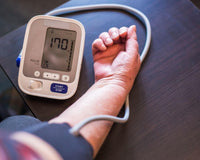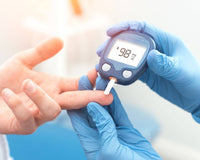Citalopram Side Effects, Dosage, Warnings, Uses And Interactions
Citalopram is a prescription drug that can be taken as a tablet or an oral solution. In this article we review the uses of citalopram, citalopram dosage, and citalopram warnings, and answer the questions what is citalopram and how does citalopram work. Learn more about this medication used to treat depression.
What Is Citalopram?
Citalopram is an antidepressant medication belonging to the class of drugs called selective serotonin reuptake inhibitors. It is most often used to treat depression.
Citalopram Vs Escitalopram
Uses Of Citalopram
Citalopram is an antidepressant used to help people recover from depression, panic attacks, and anxiety disorders. It has fewer side effects than other antidepressants.
How Does Citalopram Work?
Citalopram works by increasing the amount of serotonin—a chemical which sends signals between nerve cells and helps regulate mood, attention and behavior. By increasing serotonin levels, citalopran helps maintain mental balance and mood.
Citalopram Dosage
The dosage for citalopram can depend on a variety of factors including age, weight, severity of disease, and other medications. Citalopram should be taken without food, usually once per day in the morning or evening. The recommended initial dosage of citalopram is 20mg per day. If needed, the dosage can increase to 40mg per day based on doctor recommendation.
Citalopram comes as a tablet at three different dosages: 10mg, 20mg, and 40mg. As an oral solution, citalopram is available at a dosage of 10mg/5mL.
Citalopram Side Effects
Citalopram does have some potential side effects—some more common and serious than others.
Common Side Effects
Common side effects of citalopram include:
- Nausea
- Diarrhea
- Constipation
- Vomiting
- Heartburn
- Weight Loss
- Stomach pain
- Drowsiness
- Excessive tiredness
- Yawning
- Weakness
- Dry mouth
- Muscle pain
- Runny nose
- Heavy menstrual periods
Serious Side Effects
Serious side effects of citalopram may include:
- Chest pain
- Shortness of breath
- Fainting
- Fever
- Hives of blisters
- Rash
- Coma
- Itching
- Difficult breathing of swallowing
- Nose bleeding
- Unsteadiness
- Issues with thinking, concentration, or memory
- Seizures
Disclaimer: Here at Manifest Pharmacy, our goal is to provide you with the most relevant and current information. However, because drugs affect each person differently, we cannot guarantee that this information includes all possible side effects. This information is not a substitute for medical advice. Always discuss possible side effects with a healthcare professional who knows your medical history.
Does Citalopram Cause Weight Gain?
Citalopram does cause initial weight gain that should disappear after you stop taking the medication. In one study, patients taking citalopram gained an average of 5.9 pounds over two years.
Citalopram Warnings
Citalopram can cause dizziness, hallucination, and fast heartbeat. In very rare cases, citalopram can cause a serious condition called serotonin syndrome. Consult with your doctor immediately if you experience any of the following symptoms.
- Dizziness
- Hallucination
- Fast heartbeat
- Loss of coordination
- Twitching muscles
- Severe nausea
- Sudden fever
- Unusual restlessness
Citalopram Interactions
Taking citalopram in conjunction with other drugs can cause bleeding and bruising. Do not take citalopram at the same time as any of the following medications.
- Antiplatelet drugs such as clopidogrel.
- NSAIDs such as ibuprofen.
-Aspirin
Citalopram Side Effects, Dosage, Warnings, Uses And Interactions: Summary
Citalopram is an antidepressant belonging to the class of drugs called selective serotonin reuptake inhibitor.
It works by increasing serotonin levels to regulate mood and mitigate symptoms of depression. Citalopram can be taken as a tablet or oral solution.








